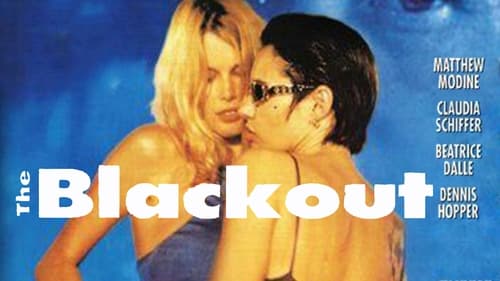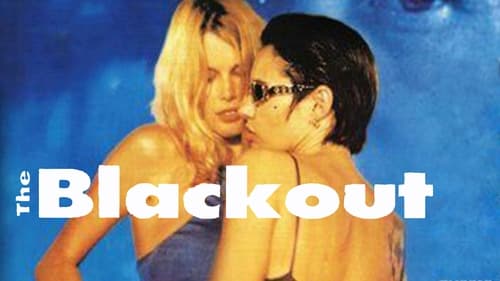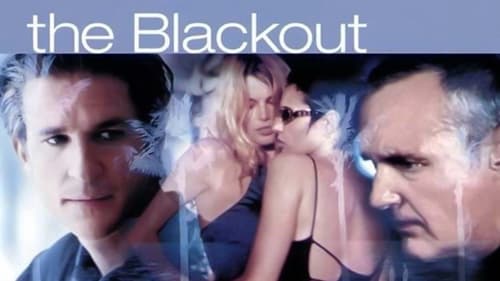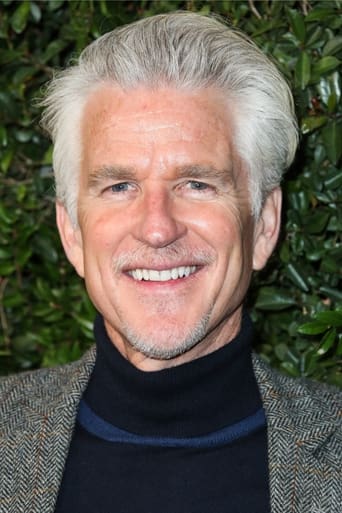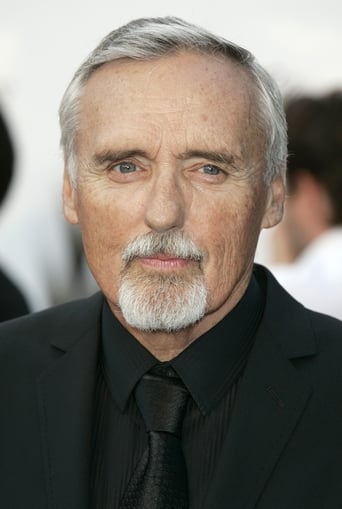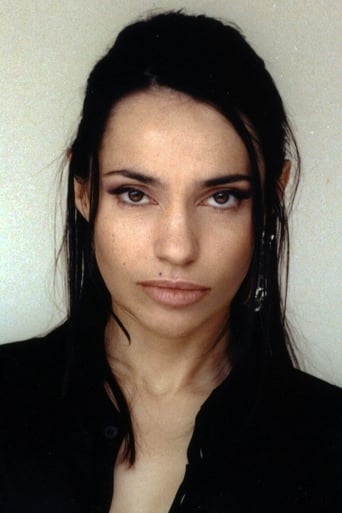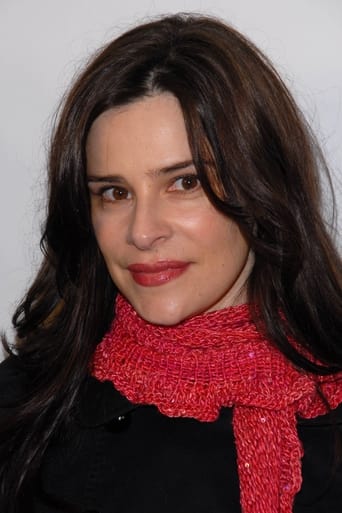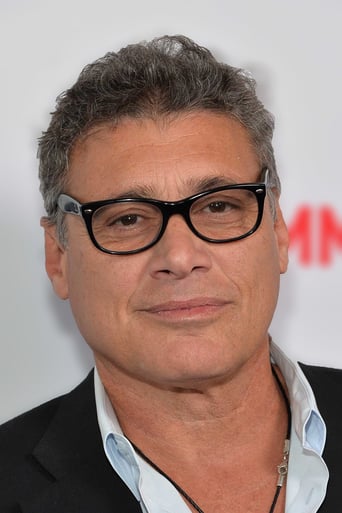Dirtylogy
It's funny, it's tense, it features two great performances from two actors and the director expertly creates a web of odd tension where you actually don't know what is happening for the majority of the run time.
Humaira Grant
It’s not bad or unwatchable but despite the amplitude of the spectacle, the end result is underwhelming.
Bea Swanson
This film is so real. It treats its characters with so much care and sensitivity.
Brennan Camacho
Mostly, the movie is committed to the value of a good time.
chaos-rampant
We're all stuck with narrow selves through the day, doing our best to mind our part in the noisy, incoherent narrative of life, organizing a myriad worries with one eye at the clock. At nights however, some nights, we dream, have passionate sex or watch truly mind-bending movies, drawing fresh water from the well of deep, mysterious non-self which is the great dancefloor where lovers meet their dragon.So here's a film about a man haunted by a half-remembered night from his past, who wakes up inside a dream to find himself. The film begins and ends with shots of the protagonist in his own primordial sea, the sea of clarity and dissolved self. He is a famous actor, to stress the roles and guises of that weekday showbiz self we carry with us everywhere. A lot of time is spent around film sets and cameras.The film is split in two very clear halves, a usual trope of films about memory since Vertigo; the long, blurry Miami night of sexual obsession and going back 18 months later. Overt drugging and boozing insert the dazedness of mind. The meta-aspects of the work involving a sex video being made and 'looking back' through cameras are thin and obvious. And Ferrara's attempt at a script-less improvised feel among the actors does not pan out in the least, not solely Modine's fault this.My guess is that it does not pan out because Ferrara is not a genuinely curious, patient person like Altman who takes pleasure in the tentative brushing of characters, Ferrara is eager to get to the bleeding soul. I don't have to reach out to his other films to confirm this, here's a film about yearnings but only as acknowledged through an overbearing sense of misery and self-pity. The obvious self-reference. The emotional bluntness. The shouting and partying as some acidic edge. These are all the same, short narrative distance away from the viewer. The film can be described as David Lynch films Le Mepris but all that French, Godardian baggage are as cumbersome now as thirty years prior. So in narrative terms, it is a modest failure.And yet I recommend this to you on its power to enchant with its visual fabrics. There are all sorts of those:1) the sex video as in-sight of our guy's hallucinative desires, and grainy handcamera footage as memory, fixing the mind. Dennis Hopper anchors this part as director, channeling both his Blue Velvet and Last Movie chaotic selves. 2) raw, cutting intimacy around the lovely Dalle. 3) warm coziness in New York, with smart usage of Claudia Schiffer as token of bloodless normalcy. 4) the b/w, Nouvelle Vague- inspired interlude at the beach.You may settle in one or more of those. I settle in the Miami reverie, not the pleasure-seeking itself but those fleeting drive-by shots of nightlife and cloudy views from balconies, the gauzy loss of self and story. Marvelous, marvelous mood. If you mute the drama, it can sink into you.
MisterWhiplash
Abel Ferrara sometimes befuddles me with his work. The Blackout especially seems like it's something out of a drug-induced dream. Perhaps this isn't always something to shy away from, especially in the name of 'art' or whatever. But in this case he's treading some ground he's already gone through, with some variations. Just a few years before he also made a tale of excess and a lonely emotional cripple (Bad Lieutenant) and a tale of the medium of film used to disparaging effect (Dangerous Game). This time a sort of weird fusion of the two happens, with a little more melodrama, about a Hollywood actor played by Matthew Modine who is an drunk and does his share and other shares of drugs, and is in love with a woman named Annie (Beatrice Dalle, oddly beautiful). But due to excess between the two, and a failed pregnancy, she splits, leaving Matty to his own devices, which is to do more drugs, more booze, wallow in depression with "video-film maker" Mickey Wayne (Hopper, perfect at the eccentric roles that define description). The difference between a film like Blackout and Bad Lieutenant is in how he treats catharsis. There's something intensely moving about what the Lieutenant goes through, how far he goes that he can somehow even try for redemption. In Blackout, Matty sobers up, gets a new girlfriend, and a year or so later keeps getting dreams of murder with his former love, and it drives him back to Miami and into the same alcohol-fueled despair. For some reason I wasn't as taken in with the character's struggle this time, despite the intense quality of Matthew Modine's performance. Most times he's very good, and only a few times he felt like he was play-acting at the role of a man running off the tracks of himself. I wanted his character to get resolution and to face his conflicts, but Ferrara's style gets in the way. Not so much that it's unwatchable, and it's never exactly boring. It's just... missing something a lot of the time.The Blackout has its moments. There's a real-raw quality to Dalle when she is on camera with Modine that is very effective. Hopper, again, takes a small role and amps up the perversity to a fever pitch, which makes a big climactic revelation with his Mickey to Matty all the more amazing and staggering to watch (complicit in his actions, sure, but not below him). But its own fever-nightmare quality, sometimes impressive and awesome in a Lynch-style, other times bogs the narrative in itself. It's not even so much pretentious as it is Ferrara indulging so much in this character's loss that we eventually lose sympathy for him. His goal for catharsis is admirable, though the depths of hell that he and the director sink to don't make it any easier.Is it under-appreciated? To an extent. I would say I was a fan of the film, up to a point. But there is a reason it feels like a minor work in Ferrara's cannon; he's done work like this before, better, stronger, with more of a visual focus. Then again, it may also be a film I'll want to return to in years time, to get in to the darker corridors of the character's downward spiral into himself. As a punishing character study, the effort's appreciated. 6.5/10
Joseph P. Ulibas
The Blackout (1997) was a film that Abel Ferrara directed but it wasn't released in the United States for nearly four years. But it was worth the wait. Instead of his usual gritty street dramas, Ferrara delves into the soul of his characters and how damaging self guilt and having an unforgiving conscience can be. Matthew Modine stars as a free wheeling celebrity who lives the life style of sex and drugs. One night after a wild night of self indulgence, he wakes up a can't remember what happened. But his old lady is dead and he feels like he's responsible. Years later, he's clean and sober but his past comes back and haunts him. One of his running buddies (Dennis Hopper) comes back into his life and his old habits return. With the return of his bad habits, a ghost from the past haunts his every step. He even begins to see a woman that looks just like his dead woman. But he's unable to get over the past and goes back to his self destructive ways. Soon he's so far gone that there's only one thing to do. Return to his dead love.A dark and twisted movie. This is another type of cinema that Abel Ferrara excels in. If it isn't the urban street drama then it's the guilty soul seeking redemption or solace. Abel Ferrara is a highly underrated director who deserves recognition for his films. A great film maker and story teller.Highly recommended.
stephen niz
Neurosis and character antipathy do not make for commercial success. THE BLACKOUT bypassed cinemas in the US, and here in Australia. The multiplex monster has no room for mavericks like Ferrara.As there are no others quite like the rebellious Ferrara, he takes liberties from his own catalogue. This time, there are shades of SNAKE EYES (1993), and it pre-empts NEW ROSE HOTEL (1998). In form though, it owes much more to Hitchcock, and VERTIGO.Like VERTIGO, THE BLACKOUT masquerades as a thriller, but is more concerned with the nature of identity. Relocating to Miami, the film is aesthetically great, though Modine looks (justifiably) clueless. The axis of the film is the concept rather than plot and the clash of high-art pretension with low-brow sleaze is conscious.Some ideas don't come off, and the form of THE BLACKOUT is awkward. But if it is too cold and removed for most filmgoers tastes, it is still a showcase for an uncompromising, daring director, willing to upset accepted conventions.The biggest disappointment is that his invention is left in this case to an unheralded release, and will go largely unnoticed.

